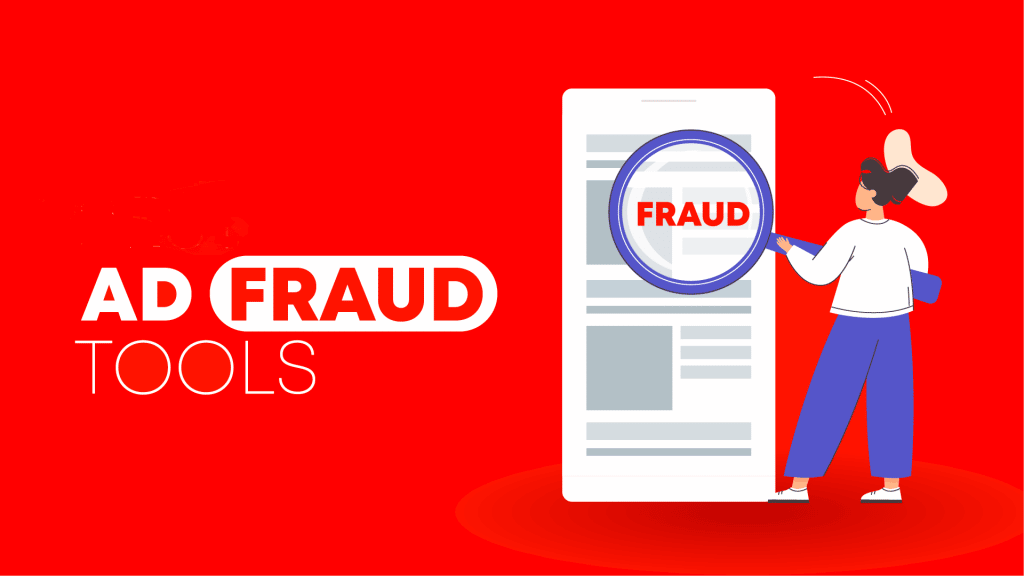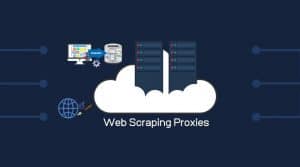Click farms are becoming a menace considering the fake engagement and how they can drain your ad budget. If the term is new, you can come in now to discover all you need to know about click farms and how to protect yourself against them.

Having followers, likes, and comments has become crucial in an era where social media is a potent tool for people and businesses to reach their audience. The goal of buying likes, views, clicks, and follows is to give potential customers a positive online presence. Consumer clicks are also a major part of the digital advertising industry's business model. Unfortunately, more clicks don't necessarily translate into successful ad campaigns. The majority of these clicks, which companies and people paid for without realizing it, are fraudulent.
This is why “click farming” has become one of the many ad fraud strategies employed by scammers to generate fake clicks. These organized “click farms” are responsible for generating the thousands of likes and followers that individuals and businesses buy for just a few dollars.
However, because they are designed to produce massive amounts of fake clicks, views, and leads, click farms have the potential to distort or destroy a company’s entire ad campaign. As such, click farms are currently becoming the biggest problem on social media. They’re considered a significant upgrade from click bots.
In this post, we'll discuss the idea behind “click farming” to help you become more proactive with your ad campaign. We would also discuss how to prevent these fraudsters from tampering with your advertising budget and, more critically, your marketing analytics.
Overview of Click Fraud

The digital space is experiencing more fraudulent activities in recent times than ever before. As such, click fraud has become a major problem online. With online pay-per-click (PPC) advertising, website owners can be paid based on how many users click on the ads on their site.
Hence, PPC ads generate revenue for publishers and drain client budgets. More clicks for an advertiser are very important based on how much a customer clicks on them. However, clicks become fraudulent when the people doing the clicking are computer programs (bots).
Hence, click fraud is essentially the act of clicking on a paid link, such as a display ad or sponsored search result, with malicious intent. Fraudulent clicks are problematic for PPC advertisers, who have to pay for every click on their ads.
The advertisers enter these PPC agreements with the expectation that they’ll have a reasonable conversion rate, resulting in a decent return on ad spend (ROAS). While bots play a big role in this, click farms are the major sources of click fraud in the world today.
Read more,
What is PPC Fraud? How to Prevent, Identify and Eliminate Your PPC Cost
What is a Click Farm?

Click farms are essentially large groups of exploited, low-paid, and low-skill resources (both equipment and workers) who manually click on paid advertising links for the click fraudsters (the “farm master”).
It can also be regarded as any location that increases internet traffic significantly with the aim of committing ad fraud. They typically do this via mobile devices in order to boost clickthrough rate value, engagement metrics, and impressions.
For many of these people, clicking on enough ads each day might significantly improve their income and serve as a viable alternative to other forms of employment. As a result, it is common to find click farms in Bangladesh, India, Indonesia, China, and the Philippines.
Workers at click farms do tens of thousands of fraudulent clicks each day, not just a few here and there. Additionally, because click farms consist of actual people who actually click on advertisements, it can be more challenging to identify these clicks.
How Do Click Farms Work?

The operation of click farms is very straightforward in today's traffic-driven and metrics-obsessed digital economy. As a result, click farms are more frequently established in developing nations like China, Egypt, and India, as we previously mentioned. Since many of these nations often lack adequate data protection laws and monitoring, they are perfect targets.
They do this due to the low cost of renting and purchasing large amounts of electronic equipment, as well as the unlimited access to cheap labour in these regions. Besides, setting up a click farm requires both hardware and software investments.
Additionally, the farm owner also needs to find the ideal location and/or rent a room, which is then furnished with gadgets, primarily low-cost smartphones. Typically, the devices are powered and fixed on tripods that have been specifically designed. The setup makes it possible for workers to click more quickly and effectively. These farms employ proxy servers and several IP addresses to conceal their true IP address. This is to hide its activity, as signing up from the same geographic location would be flagged as spam by social media platforms.
These click farms have also improved their operations to the point that, in recent times, they have started hiring people through click-selling sites that outsource human click activity.
How to Detect Click Farms

Click farms are slightly more difficult to identify because they are run by real people on real devices that behave in a similarly human manner, whereas software and bots are easier to identify based on specific behavioral patterns. Although click farms are one of the simplest ways to engage in click fraud, they are also one of the most difficult to spot.
As such, detecting click farm activities can be done by identifying interactions with the same data. For instance, the same IP addresses, phone models, browser versions, network provider, network speed, etc. Based on these, digital marketers should be able to tell if click farms are behind their ad campaign results.
However, based on these metrics, here are two ways to help you detect click farms:
-
Monitor Your Traffic

By keeping an eye on your traffic patterns, you can determine whether click farms are draining your ad budget. These fraud farms frequently use the same method when “click farming” an advertisement.
Also, make sure to check your engagement analytics when you discover a particular region is sending you clicks and they all follow the same pattern. Additionally, you can tell if a click farm is at work when you see a sudden increase in traffic to your ads and a high click-through rate without any conversions.
-
Use an Ad Fraud Detection Tool

Using ad fraud detection software is another means of spotting click farms. You can hire a third-party company to help with the monitoring of your ad campaigns' telemetry, traffic, and click-through rates if you don't have the time. They help in both detection and prevention of click fraud generated by click farms—ultimately taking you off the hook from these fraudulent click farms.
How To Protect Against Click Farms
The organic nature of clicks from farms makes it difficult to stop this behaviour using conventional techniques. As such, here are some things you can do to protect your account or ad campaign against click farms.
-
Avoid Fraudulent Ad Platforms And Publishers

Unfortunately, not all ad publishers are trustworthy. Oftentimes, the click farms consuming your advertising budget are sponsored by the publishers or supply-side platforms you use. As such, there are dishonest businesses out there that focus on collecting money by running advertising for other interested businesses while employing click farms to give the impression that they are getting real and true results.
They promote advertising space, guaranteeing significant traffic, views, clicks, and impressions to support audience engagement. When looking for an advertising partner, it would be best if you first reached out to other companies that they have claimed to be their customers to ask what their experience was. This is a better approach than reaching out to them directly and getting a personal meeting. Vetting ad partners is a critical step in preventing fraudulent activity from click farms via these platforms.
-
Use Click Fraud Solutions
One way to put a stop to click fraud by these click farms is to be able to flag fraudulent clicks as they happen. Doing this manually is practically impossible, hence the need for automated fraud detection and prevention solutions. When a lead is tagged as fraudulent in real-time, you can proactively prevent payments from being disbursed to the fraudster. This is far easier and less resource-consuming than trying to hunt a fraudster down and reclaim the ill-gotten money through a lawsuit.
There are lots of different providers of click fraud protection services out there for you to choose from. However, whether you choose to invest in this kind of protection will largely depend on the scale of your PPC campaigns and also on whether you think you’re suffering from click fraud. For advertising platforms, the ability to spot a fraudulent click in real-time can be a lifesaver, too.
-
Stop Buying Likes And Followers On Social Media

The desire of brands and individuals to demonstrate their online presence through the number of likes and followers has fuelled the growth of click farms. Hence, the artificial inflation of likes, followers, comments, and subscribers on social media just isn’t worth it. The downside to this is that it gives you skewed marketing metrics, which eventually mess up your business decisions.
It can also lead to a situation where you have a lot of followers but no conversions to show that it is working. So, it’s best to avoid poisoning your marketing data and grow your audience organically, or use click fraud software, as we mentioned earlier, if you need to run ad campaigns.
-
Focus on Ad targeting
Sometimes all it takes is a small tweak, like setting strong targeting parameters around your ad campaigns. Your ads will be more successful if they are more specifically targeted. They might become less vulnerable to click fraud as a result. It's crucial that you tailor your advertisements toward your audience because doing so will help you get your messages in front of people who can act.
FAQs About Click Farming
Q. Are click farms illegal?
Sometimes, the legal issue is not as obvious. As a result, operating click farms is not illegal under any specific regulations. However, it is against the law to use a third-party service to provide your firm with an “unfair advantage,” according to the Chinese Anti-Unfair Competition Law (AUCL).
This suggests that certain click farm operations, such as fake reviews and sponsored ad clicks, could be criminal if discovered. It's interesting to note that many developing nations do not yet have legislation that forbids the operation of click farms. Nevertheless, it's crucial to use caution.
Q. Can Click Farms Affect My Ad Campaigns?
Yes, click farms can definitely mess up your advertising operations. The click farms might not do this directly, but rather through publishers and supply-side platforms. Many of these publishers collaborate with click farms to provide customers with the traffic, likes, or followers they want on social media without the consumers' knowledge. It is very important to be sure who handles your ad campaigns; if not, they won’t produce any results.
Q. What Is the Relevance Of a Click Farm?
For those who make use of click farms, they help to increase the clickthrough rate value, inflate impressions, and boost the engagement metrics of many brands on the internet. They are mostly patronized by those looking to increase their social media followers, likes, and comments. The only challenge with this is that click farms cannot provide any conversion since they are not real individuals.
Conclusion
The “click farming” industry is growing partly due to the increased desire of businesses and individuals to appear successful on the internet. This desire has led to an increase in the purchase of clicks, followers, and likes. This strategy, however, has some drawbacks.
As such, we've covered a few things you should know about click fraud in the article above, as well as how to detect and prevent click farms from wasting your advertising budget. We trust that this post has helped you prepare for any click fraud attacks you might encounter.






